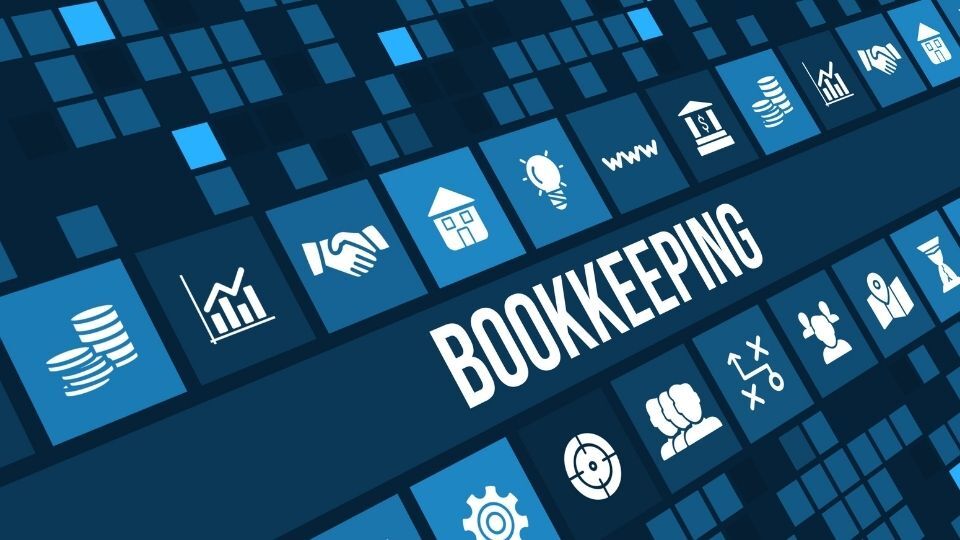Cloud bookkeeping is no longer a trend—it’s a necessity. As businesses evolve in a digital-first economy, the demand for real-time financial insights, flexibility, and automation has placed traditional bookkeeping under pressure. Cloud accounting offers a clear path forward.
In this blog from The Taxcom, we explore what efficient cloud bookkeeping truly means for modern businesses. From enhanced accessibility to robust data protection and streamlined compliance, cloud solutions are transforming the way companies manage their books.
Whether you’re a small business, startup, or scaling enterprise, this guide provides a detailed look at how cloud bookkeeping can help you reduce manual errors, improve financial visibility, and boost efficiency.
What Is Cloud Bookkeeping and How Does It Work?
Cloud bookkeeping is the practice of maintaining financial records using cloud-based software. Unlike traditional bookkeeping, which relies on local desktop software or even paper-based systems, cloud accounting tools store data securely online—accessible from any device with an internet connection.
At its core, cloud bookkeeping leverages the power of remote servers to manage, process, and store accounting information. This means businesses no longer need to invest heavily in on-site IT infrastructure or worry about regular software updates. Everything runs in the cloud, with updates and backups handled automatically by the provider.
Key Components of Cloud Bookkeeping:
- Real-time access: Business owners, bookkeepers, and accountants can view the same data simultaneously from any location.
- Automation: Invoices, bank feeds, payroll, and VAT on digital services can be automated to save time and reduce human error.
- Integration: Cloud software often integrates with other tools such as CRM systems, payroll platforms, and inventory management apps.
- Security: Leading providers offer robust encryption, two-factor authentication, and regular data backups to ensure your data is protected.
How It Works in Practice:
- Transaction Capture: Bank feeds pull data directly from your business accounts into the system.
- Categorisation: Transactions are automatically sorted using pre-set rules or AI-based suggestions.
- Reconciliation: Users review and approve matches between bank entries and accounting records.
- Reporting: Real-time dashboards provide instant insights into cash flow, profit margins, and outstanding invoices.
- Compliance: HMRC integrations allow for smooth submissions of VAT returns and other compliance reports.
With these capabilities, cloud bookkeeping not only simplifies financial management but positions businesses for greater agility and transparency.
Why Modern Businesses Are Shifting to Cloud Bookkeeping
The move to cloud bookkeeping isn’t just about convenience—it’s a strategic decision driven by the changing demands of modern business. Speed, scalability, and smarter financial oversight are no longer optional; they’re competitive necessities. Here’s why more UK businesses are leaving traditional systems behind.
1. Real-Time Financial Visibility
In today’s fast-paced environment, waiting weeks for monthly reports is no longer practical. Cloud bookkeeping platforms provide instant access to up-to-date financial data. Business owners can see their cash flow, invoices, and expenses in real time, empowering quicker decisions.
2. Cost Efficiency
Maintaining in-house servers and IT support is expensive. Cloud bookkeeping eliminates the need for physical infrastructure and reduces overheads by shifting to a subscription-based model. Most providers offer tiered pricing, making it scalable for businesses of all sizes.
3. Enhanced Collaboration
With data stored online, accountants, bookkeepers, and business owners can work on the same system simultaneously. This streamlines communication and reduces delays, especially during critical periods like tax season or financial reviews.
4. Improved Compliance
UK businesses must stay compliant with regulations such as Making Tax Digital (MTD). Cloud bookkeeping systems are built to align with these frameworks, offering direct links to HMRC and tools that simplify digital record keeping and VAT submissions.
5. Disaster Recovery and Security
Unlike on-premises solutions, cloud providers invest heavily in data protection. Encrypted servers, secure backups, and rigorous access controls help protect sensitive information from loss or cyber threats—far more effectively than many in-house setups.
6. Scalability and Flexibility
Cloud bookkeeping scales with your business. Whether you’re hiring more staff, expanding into new markets, or increasing transaction volume, cloud systems adapt without major hardware or software changes.
7. Remote Work Compatibility
With hybrid work here to stay, cloud bookkeeping ensures financial tasks can be completed from anywhere. Teams can manage payroll, reconcile accounts, and review reports remotely—no office access required.
Benefits of Efficient Cloud Bookkeeping
Efficient cloud bookkeeping isn’t just about going digital—it’s about maximising value from every aspect of your financial management. When implemented properly, cloud bookkeeping can improve accuracy, streamline operations, and create a stronger foundation for decision-making.
Let’s look at the specific advantages efficient cloud bookkeeping offers modern UK businesses:
1. Automation That Reduces Manual Work
Manual data entry is time-consuming and error-prone. Efficient cloud bookkeeping automates repetitive tasks such as transaction categorisation, invoice generation, and bank reconciliations. This not only saves hours each week but also reduces human error—improving accuracy across the board.
2. Centralised Data Access
No more scattered spreadsheets or version control issues. Cloud bookkeeping platforms centralise financial data in one secure dashboard. Whether you’re managing payroll, tracking expenses, or reviewing quarterly performance, everything is accessible in real time.
3. Improved Decision-Making
Access to real-time data means you’re no longer flying blind. Efficient cloud bookkeeping equips businesses with customisable dashboards and powerful reporting tools. Financial trends, performance metrics, and cash flow forecasts are just a few clicks away—helping leadership make more informed, timely decisions.
4. Scalable Infrastructure
As your business grows, so do your financial complexities. Efficient cloud bookkeeping scales effortlessly—from a sole trader with a few monthly invoices to a limited company managing hundreds of transactions daily. New features, user accounts, and integrations can be added without disrupting operations.
5. Better Cash Flow Management
By automating invoice reminders and tracking payments, cloud bookkeeping makes it easier to stay on top of receivables. Alerts for overdue invoices and real-time visibility into cash positions help avoid liquidity crunches.
6. Regulatory Confidence
The UK’s regulatory landscape continues to evolve, with initiatives like Making Tax Digital (MTD) reshaping compliance requirements. Cloud bookkeeping platforms are constantly updated to reflect the latest HMRC rules, giving you confidence that your processes are legally sound.
7. Reduced Overheads
With fewer resources spent on manual processes and IT infrastructure, efficient cloud bookkeeping helps reduce operational costs. You can allocate internal capacity to more strategic areas—like growth or client service—instead of day-to-day bookkeeping tasks.
8. Paperless Efficiency
Cloud bookkeeping supports digital receipts, electronic invoicing, and paperless audits. This not only improves eco-friendliness but also simplifies document storage, retrieval, and sharing—ideal for remote teams and fast-paced operations.
Comparing Traditional and Cloud-Based Bookkeeping

Understanding the distinction between traditional bookkeeping and cloud-based bookkeeping is key to appreciating the full value of making the switch. While both aim to track financial data and ensure compliance, the tools, processes, and outcomes differ significantly.
Here’s a side-by-side comparison:
| Feature | Traditional Bookkeeping | Cloud Bookkeeping |
| Data Storage | Local computers, servers, paper records | Secure cloud servers accessible online |
| Accessibility | Limited to office premises or specific machines | Anywhere, anytime, via browser or app |
| Real-Time Data | Delayed—often requires manual input or reports | Instant updates across all devices |
| Collaboration | Requires physical meetings or file sharing | Multiple users access live data simultaneously |
| Automation | Minimal automation; most tasks manual | High automation—bank feeds, invoicing, VAT calculations |
| Compliance | Manual processes and risk of outdated methods | Built-in compliance with UK regulations (e.g., MTD) |
| Backup & Recovery | Manual backups (if any); risk of data loss | Automatic backups with disaster recovery features |
| Scalability | Requires hardware/software upgrades | Easily scales with business growth |
| Cost Efficiency | Higher long-term costs (maintenance, IT support) | Lower costs, pay-as-you-grow pricing models |
How to Transition from Traditional to Cloud Bookkeeping
Switching from traditional systems to cloud bookkeeping doesn’t need to be disruptive. With proper planning and the right tools, your business can make a smooth, secure transition that delivers immediate value.
Here’s a practical step-by-step guide to moving your bookkeeping into the cloud.
Step 1: Audit Your Current Bookkeeping Process
Begin by reviewing your existing processes, tools, and pain points:
- Are your records paper-based, Excel-driven, or in outdated software?
- How often do you experience delays, errors, or lost documents?
- What financial reports are difficult to access or prepare?
Identifying inefficiencies helps shape the criteria for your new system.
Step 2: Choose the Right Cloud Bookkeeping Platform
Not all cloud accounting tools are created equal. Look for platforms that:
- Support UK-specific compliance (e.g. Making Tax Digital)
- Integrate with your current apps (CRM, POS, inventory)
- Offer multi-user access with granular permissions
- Provide excellent customer support and onboarding
Popular UK options: Xero, QuickBooks Online, FreeAgent, Sage Business Cloud.
Step 3: Set Clear Migration Goals
Know what success looks like. Examples might include:
- Completing migration within 30 days
- Automating 80% of invoice processing
- Reducing month-end reporting time by 50%
Goals help measure return on investment and keep the transition focused.
Step 4: Back Up Existing Financial Data
Create a secure backup of all existing records—digital and paper. This ensures you have a fall-back and protects against data corruption during migration.
Step 5: Clean and Standardise Your Data
Before importing data into your cloud system, cleanse it:
- Remove duplicate entries
- Fix inconsistencies in naming, formats, or account codes
- Close off old accounts that are no longer relevant
Step 6: Implement in Phases
Rather than shifting everything at once, transition in stages:
- Start with bank feeds and cash flow
- Add invoicing, expenses, and payroll next
- Finally, move reporting and compliance processes
This reduces disruption and helps your team adapt gradually.
Step 7: Train Your Team
Even the best software is useless if staff don’t know how to use it. Offer hands-on training to:
- Bookkeepers and accountants
- Operations and admin staff
- Directors or business owners
Most platforms offer free training videos, help centres, and live support.
Step 8: Review and Optimise
Post-migration, monitor performance closely:
- Are reports accurate?
- Is automation working as intended?
- Are users engaging with the platform?
Tweak settings, refine workflows, and stay current with new software features.
Transitioning to cloud bookkeeping is an investment in control, clarity, and long-term efficiency. Done properly, it minimises short-term friction while unlocking far greater value in the months and years ahead.
Security and Compliance in Cloud Bookkeeping
Security and compliance are two of the most common concerns when businesses consider moving their financial data to the cloud. Fortunately, modern cloud bookkeeping platforms are built with these priorities at their core—offering robust protections that often exceed what most on-premises systems provide.
Data Encryption and Privacy
Leading cloud bookkeeping services use advanced encryption (often AES-256) both in transit and at rest. This means your financial data is scrambled during transfer and storage, making it unreadable to unauthorised users.
Cloud providers also comply with the UK GDPR, ensuring personal and financial data is handled lawfully and transparently.
Multi-Factor Authentication (MFA)
MFA requires users to verify their identity through multiple steps—usually a password and a one-time code sent to a device. This dramatically reduces the risk of unauthorised access, even if passwords are compromised.
Secure Backups and Disaster Recovery
With traditional systems, a computer crash or data corruption could mean losing months of records. Cloud bookkeeping platforms automatically back up your data in multiple secure locations. In the event of a system failure or cyberattack, data can be restored quickly—minimising downtime.
HMRC Integration and Making Tax Digital (MTD)
Cloud platforms are designed to work seamlessly with HMRC’s digital systems. Many are MTD-compliant, meaning they can submit VAT returns and other filings electronically, reducing errors and improving audit trails.
Compliance features often include:
- Digital record-keeping
- Direct submission of VAT and PAYE
- Automated audit logs
User Permissions and Access Control
Not everyone in your business needs full access to financial records. Cloud platforms let you assign roles and set permissions—so the sales team, for instance, can see their invoices but not the payroll.
This ensures sensitive data remains confidential and only accessible to those with proper clearance.
Regular Security Updates
Unlike traditional software, which might go months or years without updates, cloud bookkeeping platforms receive continuous patches and upgrades. These updates are handled by the provider, ensuring that your system always meets the latest security standards.
Regulatory Monitoring
Reputable providers monitor changes in tax law and accounting standards and update their systems accordingly. This reduces your regulatory burden and lowers the risk of non-compliance.
Integrations and Ecosystems: Making Cloud Bookkeeping Work With Your Tools
One of the key strengths of cloud bookkeeping is its ability to integrate seamlessly with other digital tools—creating an ecosystem that streamlines operations across your entire business.
Why Integrations Matter
Modern businesses don’t operate in silos. Your financial data is connected to sales, inventory, payroll, CRM systems, and more. Cloud bookkeeping platforms eliminate the need for manual data transfers by syncing directly with these tools.
This not only saves time but ensures consistency and reduces the risk of human error.
Common Integrations with Cloud Bookkeeping Platforms:
- Bank Feeds: Automatically import transactions in real time, speeding up reconciliation.
- CRM Software (e.g., HubSpot, Salesforce): Sync customer invoicing and payment data for better sales and finance alignment.
- Payroll Systems (e.g., BrightPay, Sage Payroll): Automatically process salaries, pensions, and tax deductions.
- Inventory Management (e.g., Unleashed, DEAR): Track stock movement and update cost-of-goods-sold directly in your accounts.
- E-commerce Platforms (e.g., Shopify, WooCommerce, Amazon): Link sales, returns, and payment processors with cloud bookkeeping records.
- Payment Gateways (e.g., Stripe, PayPal): Record incoming payments instantly and accurately.
Custom APIs for Tailored Solutions
Advanced users or larger businesses may also use custom APIs to create bespoke workflows. Cloud bookkeeping platforms like Xero and QuickBooks offer open APIs, allowing developers to build tailored integrations specific to your business logic.
Benefits of a Connected Cloud Bookkeeping Ecosystem:
- Efficiency: Automate processes across departments.
- Accuracy: Sync real-time data, reducing duplication and errors.
- Speed: Faster decision-making with consolidated dashboards.
- Scalability: Easily add new tools or platforms as your business grows.
Frequently Asked Questions
1. What exactly is cloud bookkeeping?
Cloud bookkeeping is a method of managing your business’s financial records using online software hosted on remote servers. Unlike traditional desktop software, cloud bookkeeping allows real-time access to data from any device with an internet connection.
2. Is cloud bookkeeping safe for sensitive financial data?
Yes. Cloud bookkeeping providers use enterprise-grade encryption, secure data centres, and multi-factor authentication to protect financial information. These systems are often more secure than on-site alternatives.
3. How does cloud bookkeeping help with Making Tax Digital (MTD)?
Most cloud bookkeeping software is built to comply with MTD. They allow direct submission of VAT returns to HMRC and maintain digital records, keeping your business compliant with UK tax laws.
4. Can cloud bookkeeping be used by small businesses or sole traders?
Absolutely. Cloud bookkeeping is especially valuable for small businesses, freelancers, and sole traders due to its low cost, automation features, and ease of use. It helps manage finances without hiring a full-time bookkeeper.
5. What are the key features I should look for in a cloud bookkeeping platform?
Look for:
- MTD compliance
- Bank feed integration
- Invoicing and payment tracking
- Payroll support
- Mobile app functionality
- Custom reporting
- Integration with other tools (CRM, e-commerce, etc.)
6. How do I migrate from spreadsheets or legacy systems to cloud bookkeeping?
Migration involves exporting data from your current system, cleaning and formatting it, then importing it into your chosen cloud bookkeeping platform. Most providers offer migration tools or services to help.
7. Do I need to be tech-savvy to use cloud bookkeeping software?
No. Cloud bookkeeping platforms are designed with user-friendly interfaces, guided setup, and extensive support documentation. Many tasks are automated, and most providers offer training materials.
8. Is internet access required to use cloud bookkeeping?
Yes. Since your data is stored and accessed via the internet, a stable connection is essential. However, some platforms offer offline features or mobile access that sync once you’re back online.
9. Can multiple people work on the same cloud bookkeeping account?
Yes. Cloud bookkeeping allows multi-user access with custom permissions. Your accountant, bookkeeper, and team members can work simultaneously without version conflicts.
10. What’s the cost of using cloud bookkeeping software?
Costs vary depending on features and user numbers. Most platforms offer monthly subscriptions, starting from around £10–£30 per month. Pricing tiers often scale with business size.
11. How does cloud bookkeeping impact audits and financial reviews?
It simplifies them. Auditors can be granted secure access to the system, eliminating the need to compile paperwork manually. Cloud bookkeeping keeps a detailed audit trail of all transactions.
12. Is it difficult to switch cloud bookkeeping platforms if my needs change?
While switching requires planning, it is doable. Most platforms allow export of financial data in standard formats. Before migrating, ensure your new provider can support import of legacy data.
Ready to Modernise Your Finances with Cloud Bookkeeping?
If you’re still relying on outdated spreadsheets or traditional accounting systems, now is the time to act. Cloud bookkeeping isn’t just an upgrade—it’s a strategic advantage for modern businesses.
Whether you’re a startup looking for simplicity, or an established firm aiming for scalability and insight, cloud bookkeeping delivers the tools and transparency you need to grow.
At The Taxcom, we help businesses across the UK transition to efficient cloud bookkeeping with minimal disruption and maximum results. From platform selection to setup, training, and compliance, we handle the hard work so you can focus on running your business.
Contact us today
You can also check our recent blog on Cheque fraud
Table of Content

Our Content Writing Team boasts a proven track record of crafting engaging and impactful content that drives success and achieves results.







